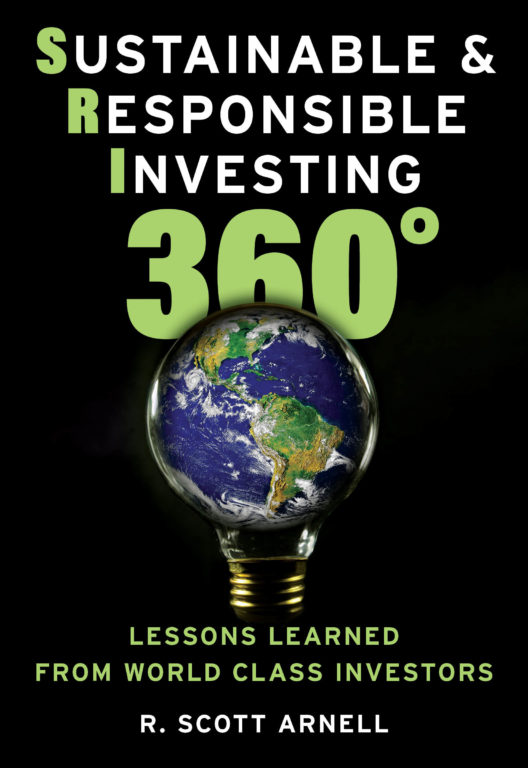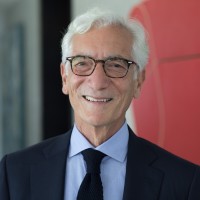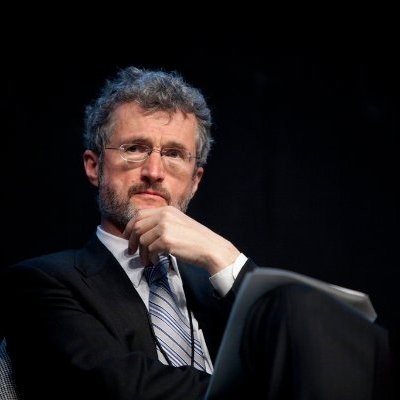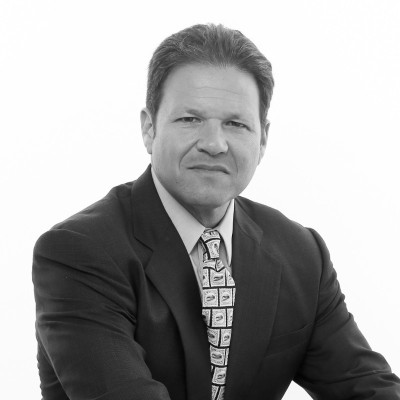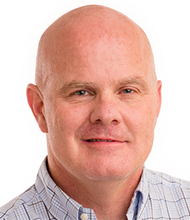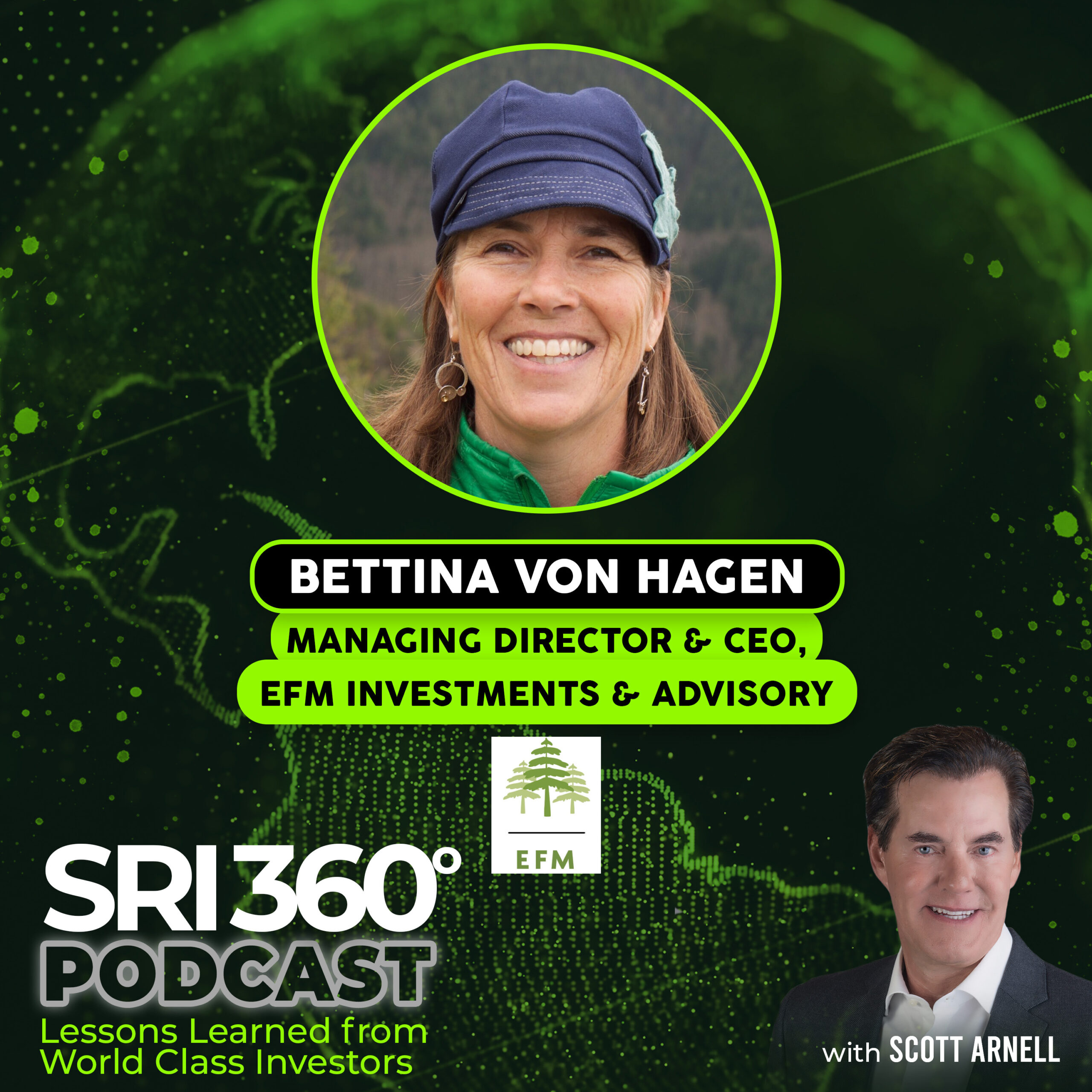
“Our desired future condition is a forest that is financially, ecologically and socially more valuable after our management than before it. ”
— Bettina Von Hagen
In this episode, I’m talking with Bettina von Hagen, Managing Director & CEO, EFM Investments & Advisory. Since founding Ecotrust Forest Management 20 years ago, she’s been redefining forestry investment – consistently beating traditional market-rate returns while protecting ecosystems, communities, and future generations.
Her journey began in Peru.
Bettina grew up in a chaotic Lima under military rule, with earthquakes, curfews, and a sense that the world didn’t quite make sense. Her father, an “ancient roads” scholar, was trekking through the Andes studying Inca engineering. Her mother, a Brazilian-German artist, printed ancient motifs on Pima cotton and ran her textile business for 40 years.
At age 14, Bettina visited the Galápagos Islands – a trip that would stay with her forever.
Most people remember the wildlife. Bettina saw systems. Evolution, niche development, ecological succession. And later, when she walked into business school at the University of Chicago, those Galápagos systems helped her decode the strange new language of efficient markets.
However she didn’t go straight to the business world. She started out in evolutionary biology, even working in immunology labs in Paris and Leiden. But after realizing she was a “bad lab tech” with a tendency to boil 10-step protocols into three, she pivoted toward business.
At the time, she wandered across Europe and wrestled with the tension between science and impact. Unsure of what came next, a chance conversation with a banker planted the idea of getting an MBA – so she applied, ultimately choosing Chicago, home to Milton Friedman and free market orthodoxy.
After graduating, she went into commercial banking – first in Chicago, then in Portland, Oregon. There, she encountered the timber wars firsthand. As a banker, she managed forestry clients and watched as national forests were overharvested while protests erupted over endangered species and old-growth loss.
Neither side felt quite right. She asked a different question: How do we meet essential needs – like timber – without compromising ecosystems or future generations?
That question led her to Ecotrust, a nonprofit focused on conservation-based development. There, she helped launch Craft3, a triple-bottom-line lender, and Beneficial State Bank. But the real spark came in 2004, when she co-founded EFM within Ecotrust to pioneer sustainable forest investing.
By 2008, she bought a stake in the company and stepped in as CEO.
EFM now manages 200,000 acres and nearly $500M in assets, with a staff of just 11 people and a vast network of contractors. Their model isn’t just about timber. It’s about carbon credits, conservation easements, water protection, salmon runs, tribal partnerships, and restoring degraded ecosystems.
Bettina’s forestry strategy is built on what she calls the Five R’s:
Rotation: Letting trees grow longer for higher-value wood.
Retention: Leaving 10–30% of trees to support soil, seedbanks, and habitat.
Reserves: Protecting special ecological areas, like salmon-bearing streams.
Restoration: Rebuilding habitat, especially in fire-prone and aquatic systems.
Relationships: Partnering with tribes, local communities, and land trusts.
EFM’s forests generate revenue through multiple streams. When timber prices dip, they don’t rush to harvest – instead, they “store value on the stump.” Trees continue to grow, becoming more valuable over time. Carbon markets make this kind of patience financially viable.
By deferring cuts, selling carbon offsets, or securing conservation easements, EFM creates liquidity without compromising ecological integrity.
The results speak for themselves. Every fund exit has outperformed the NCREIF Timberland benchmark, and every acre under EFM’s care becomes more ecologically and socially valuable over time.
Forests don’t have to be sacrificed for growth. In Bettina’s hands, they are growth.
Tune in to hear how she’s building a forestry model that works – for investors, ecosystems, and future generations.
Listen to the episode on Apple Podcasts, Spotify, Overcast, Podcast Addict, Pocket Casts, Castbox, YouTube Music, Amazon Music, or on your favorite podcast platform. You can watch the interview on YouTube here.
What was your favorite quote or lesson from this episode? Please let me know in the comments.
SCROLL BELOW FOR LINKS AND SHOW NOTES…
ADDITIONAL RESOURCES:
SHOW NOTES:
[00:00] Introduction
[00:00] Bettina’s childhood in Peru and her parents’ influence
[02:50] Galapagos visit that rewired Bettina’s view of natural and business systems
[07:31] Why Bettina left biology for business
[11:27] Getting an MBA from the University of Chicago
[13:54] Entering banking and encountering the “timber wars”
[18:10] Transition to Ecotrust
[23:00] The founding vision of EFM
[28:44] EFM Investments and Advisory: A high-level view
[33:17] Why forests are attractive as a low-risk, high-optional investment
[38:32] Why the Pacific Northwest is ideal for sustainable forestry
[44:08] EFM’s 5R climate-smart forestry strategy
[58:59] How sustainable forestry delivers returns for investors and the planet
[01:00:14] EFM’s two main services
[01:05:13] Three-phase investment strategy
[01:11:51] The Sek-wet-se project: Transferring land to the Coquille tribe
[01:14:13] Impact measurement and reporting
[01:18:52] Reducing investment risk through diverse revenue streams
[01:22:41] Meta’s innovative carbon credit agreement on the Olympic Peninsula
[01:30:12] Carbon credit challenges and the path to high integrity
[01:37:49] The unique value EFM offers to larger players
[01:40:23] Scaling impact and future plans
[01:49:10] Rapid-fire questions
MORE BETTINA VON HAGEN QUOTES FROM THE INTERVIEW:
“BSC was funded with £600m – £400m from dormant bank accounts and £200m from major UK banks. The UK developed the concept of unlocking dormant accounts – untouched for 15 years – for social purposes, while still allowing owners to reclaim their funds anytime. The model has been so innovative that other countries have looked to replicate it. ”
— Bettina Von Hagen
“Social investments definitely can deliver competitive returns – not always, and not in every case, but you can create something that looks and feels mainstream while also delivering clear, measurable social impact. ”
— Bettina Von Hagen



